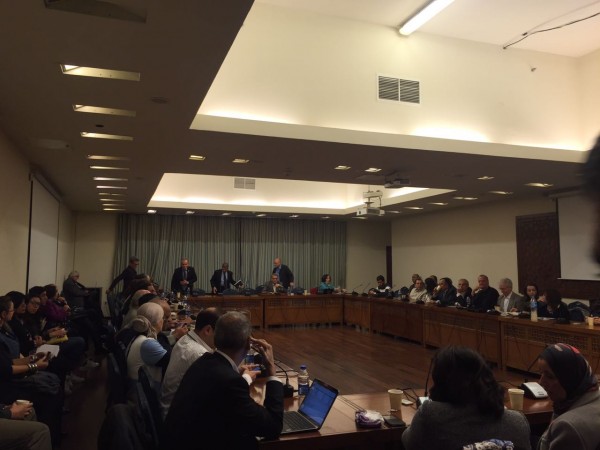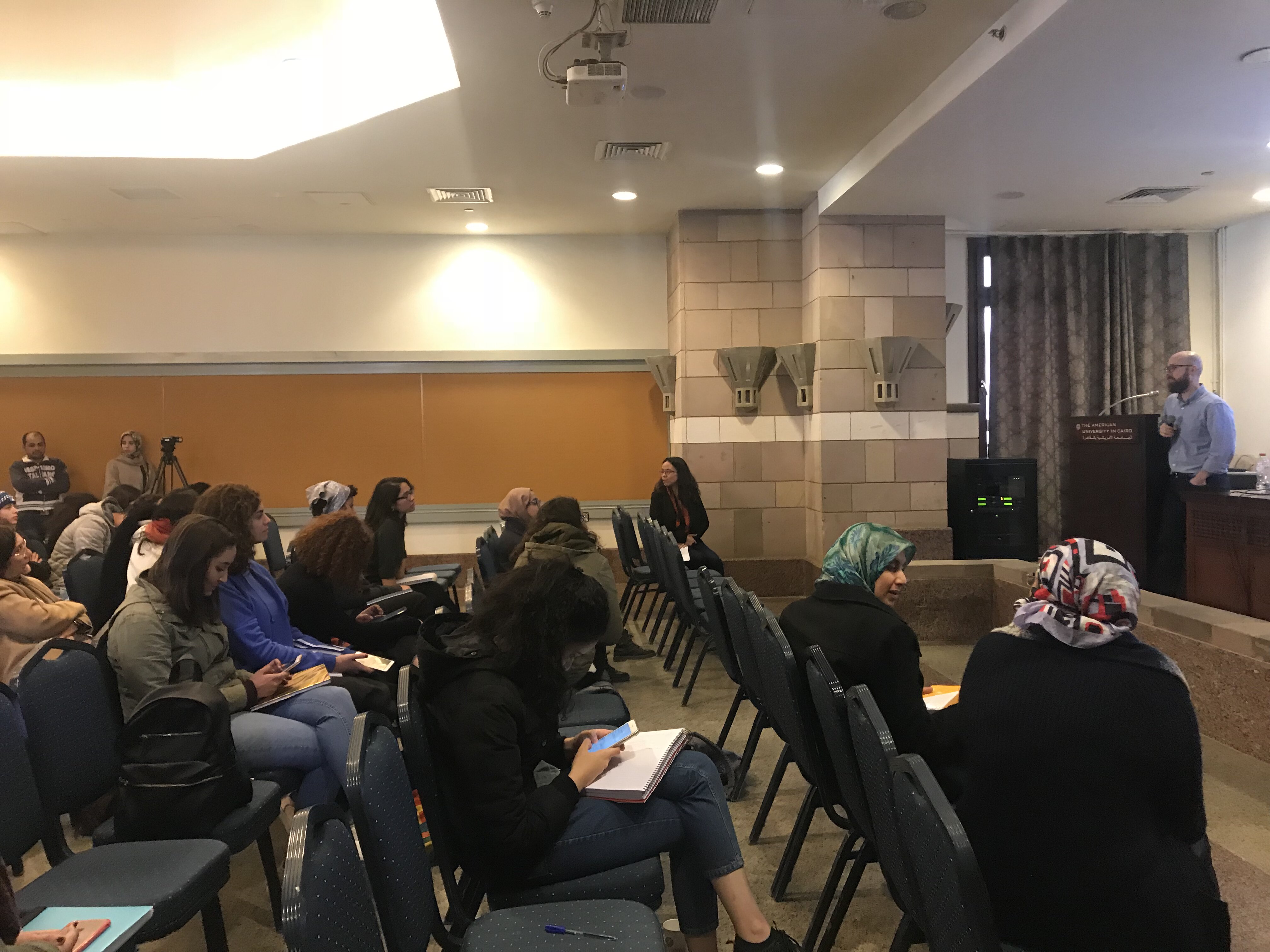Meet the Parents: University Senate Convenes to Discuss Good Governance
![The University Senate and the Parents Association were involved in a heated discussion regarding tuition fees [Yasmeen Shaheen]](http://www.auccaravan.com/wp-content/uploads/2016/12/unnamed-file-e1481121949195.jpeg)
@YasmeenShaheenn @Ledanki
In an emergency meeting on November 29, AUC President Francis J. Ricciardone convened with the University Senate. They were joined, for the first time, by the Parents Association (PA) to discuss the tuition fees crisis.
“No currently enrolled student will have to withdraw from AUC for the amount due. Our goal is to lose no students,” Ricciardone said.
He commended the Board of Trustees for approving a $5 million grant to create an Emergency Scholarship Program.
“Loans are no longer part of the package,” he added much to the relief of the parents present.
However, the discussion was quick to escalate as members from the PA believed that the administration was neither addressing their demands, nor taking them seriously.
“As stakeholders, we expected better,” President of the PA Alia Abdel-Ghaffar said.
Representatives from the Student Union (SU), including its president, Amr El-Alfy were also present and requested previous and future university budget forecasts and expenditure reports.
SHARED GOVERNANCE
The Senate unanimously voted to approve the formation of an ad-hoc committee tasked with communicating with the administration on issues of shared governance and transparency.
This new body will include members from the Senate’s Executive Committee.
However, some senators expressed concern that this body would be limited to an advisory role.
“It is necessary that the committee would have open access to real and true information, even regarding issues of confidentiality,” said Professor of Architecture Basil Kamel.
EMERGENCY PROGRAM
The Emergency Scholarship Program was the main point of contention.
The administration confirmed that all those who are currently on financial aid will automatically be considered for the additional scholarship grant.
The additional emergency scholarship is also open to those who are not currently in a financial aid program.
“$5 million cannot be donated every year,” El-Alfy said.
The parents, however, were more concerned with who this would cover.
“Revising financial aid is very short-term. Can this possibly cover everyone?” said Manal Marzouk, a PA representative and formerly employed in United States Agency for International Development (USAID) education branch.
The parents were, on the whole, unsatisfied with the grant, claiming it did not address their demands.
Professor of Practice at the Department of Journalism and Mass Communication Mervat Abu Oaf recalled her own experience working in financial aid programs.
“Do not think that other parents don’t wish for [the emergency grant]. I agree that this is not a long-term solution but please consider the opportunity,” she told the parents.
TUITION FEES
The parents demanded that tuition be calculated and paid entirely in Egyptian pounds and second, that a 5-7 percent cap is put into effect for currently enrolled students.
They further added that new conditions should only be applied to incoming students.
To this, President Ricciardone replied by saying that tuition only covers 60 percent of the cost of attendance – the rest is covered by the endowment.
El-Alfy demanded that the administration provides forecast reports for 16, 20 and 25 EGP-dollar rates.
Dean of Global Affairs and Public Policy Nabil Fahmy viewed the problem from a different perspective.
Fahmy said that the problem lies in the administration’s failure to make contingency plans and forecast accordingly.
“I am not saying that AUC is responsible for the floating but I can’t ignore the fact that parents are going to pay 60-80 percent more,” he said.
ON SURVEILLANCE
Both members of the faculty and the SU representatives raised concerns regarding the installation of surveillance cameras.
“I’m very concerned bout surveillance, especially seeing as how this measure was taken without consulting the Senate,” Assistant Professor of Political Science Marco Pinfari said.
Ricciardone tied the implementation of greater surveillance as a question of responsibility.
“When faculty see students throwing desks out the windows, whose responsibility is this? That is not freedom of expression,” he said.
El-Alfy also echoed Pinfari’s sentiments saying that surveillance should not have been taken without first informing the SU.
Aside from the Emergency Program, no other concrete solution was reached.




